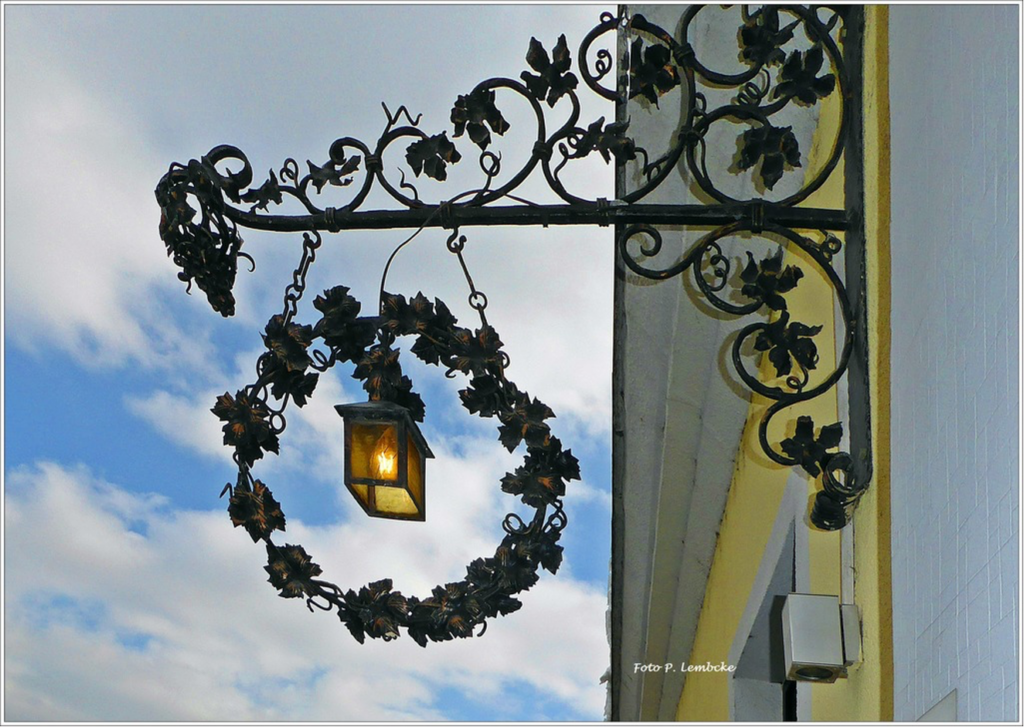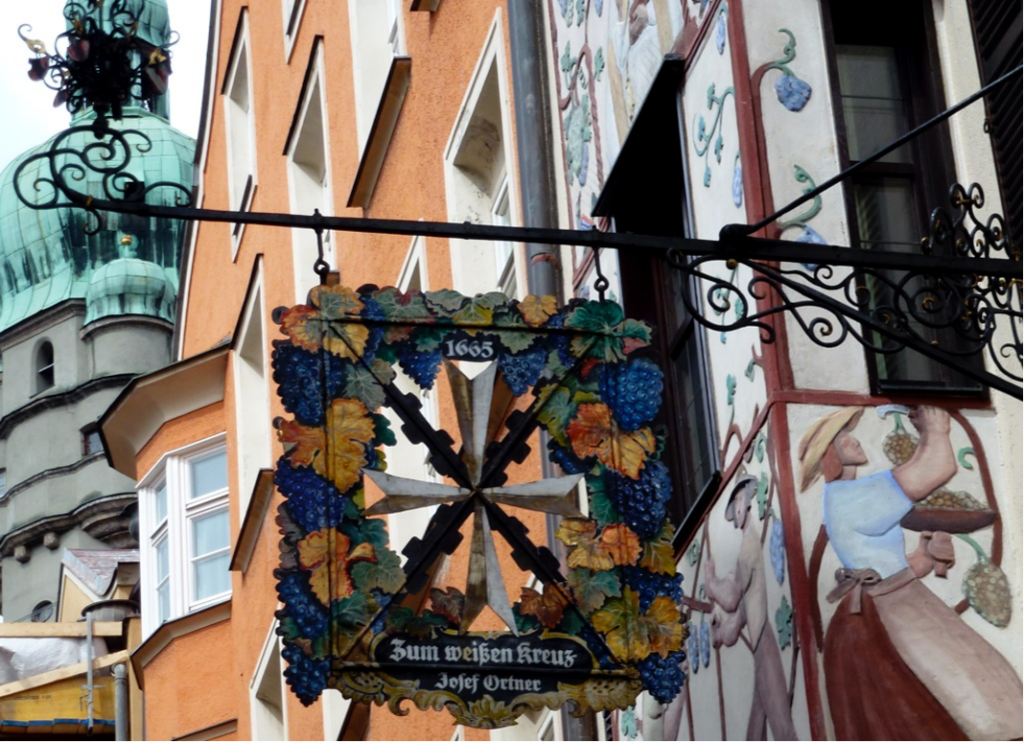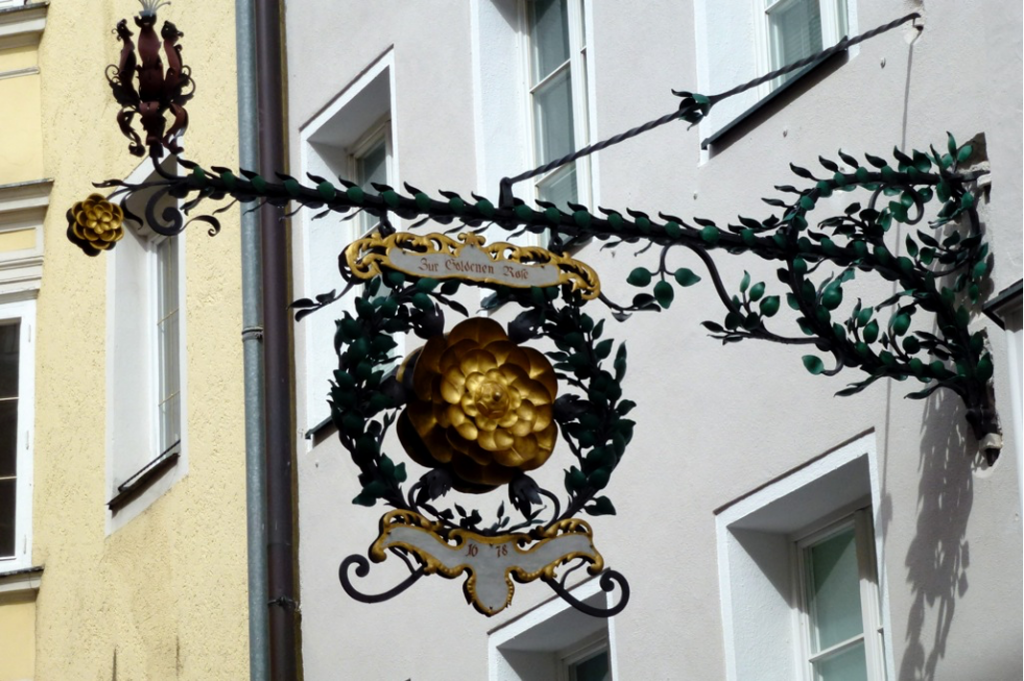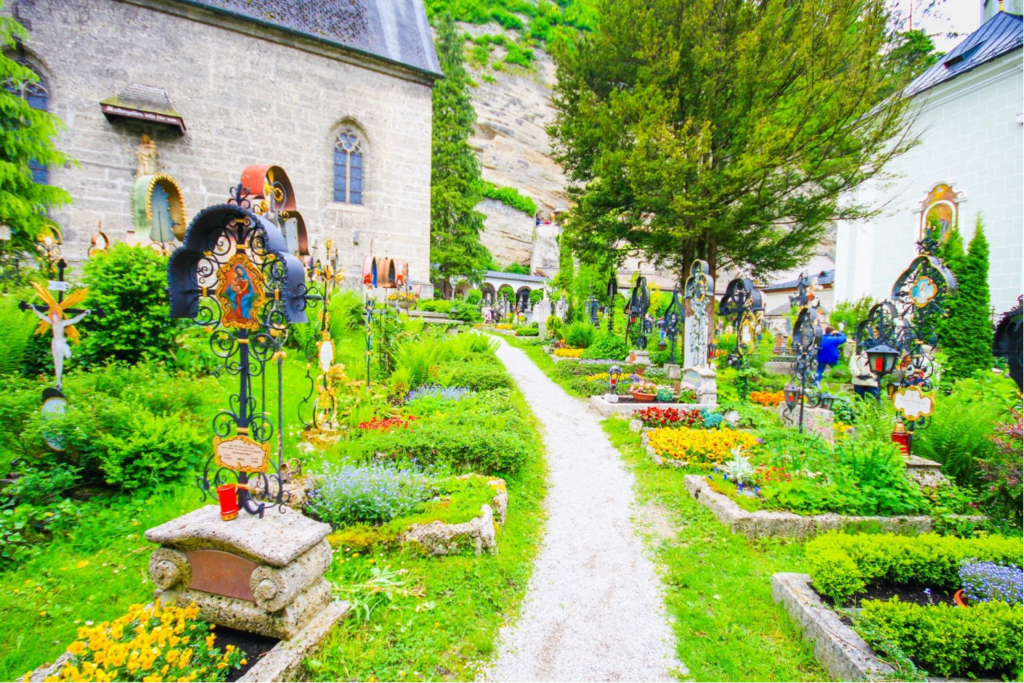The guest-house
(Poet's title: Das Wirtshaus)
Set by Schubert:
D 911/21
[October 1827]
Part of Winterreise, D 911
Auf einen Totenacker
Hat mich mein Weg gebracht,
Allhier will ich einkehren,
Hab ich bei mir gedacht.
Ihr grünen Totenkränze
Könnt wohl die Zeichen sein,
Die müde Wandrer laden
Ins kühle Wirthshaus ein.
Sind denn in diesem Hause
Die Kammern all besetzt?
Bin matt zum Niedersinken,
Bi tödlich schwer verletzt.
O unbarmherz’ge Schenke,
Doch weisest du mich ab?
Nun weiter denn, nur weiter,
Mein treuer Wanderstab.
To a burial ground
Is where my path has brought me.
I am ready to check in here:
I thought to myself.
You green funeral wreaths
Could well be the signs
Inviting tired travellers
Into the cool guest-house.
So in this house are
All the rooms occupied?
I am so exhausted that I could collapse,
I am so badly wounded that I could die.
Oh merciless inn,
Are you actually turning me away?
So further then, just go on further,
My faithful walking staff!
All translations into English that appear on this website, unless otherwise stated, are by Malcolm Wren. You are free to use them on condition that you acknowledge Malcolm Wren as the translator and schubertsong.uk as the source. Unless otherwise stated, the comments and essays that appear after the texts and translations are by Malcolm Wren and are © Copyright.
☙
Themes and images in this text:
Graves and burials Green Inns and guest houses Journeys Not moving Walking and wandering Walking sticks (Wanderstab) Winter Wounds Wreaths and garlands

In Austria and other parts of the German speaking lands many taverns and guest houses hang up elaborate inn-signs, many of them (even if made of wrought iron) based on wreaths of greenery. When our traveller sees a graveyard full of green funeral wreaths he sees it as a suitable guest-house where he can lay down his weary and wounded body. He sees the graves not so much as beds (a fairly common image in 18th century poetry, since going to bed promises rising in the morning) but as rooms with firmly closed doors. He finds to his dismay that all the rooms are taken, there is not a single open grave that he can occupy.
How did Müller imagine his first readers reacting to this image? He would have expected them to remember Mary and Joseph finding that there was no room at the inn at Bethlehem, and so Christ’s birth had to take place in a stable. Did he expect people to make the parallel with the winter traveller, who is looking for somewhere to die rather than to be born, but who is similarly turned away? Is the good news of the nativity being inverted deliberately? Was he expecting readers to think through what actually happened to the traveller, rather than dwelling on the image of not finding a room in a guest-house? Are we expected to take the claim that he was mortally wounded literally? Did the traveller’s keenness to check into the inn in fact mean that he had made an attempt to kill himself? Is the poem a way of coping with the realisation that he has failed, that he has to keep living?

Photo: Malcolm Wren

Photo: Malcolm Wren

https://thecreativeadventurer.com/a-guide-to-st-peters-abbey-and-cemetery-salzburg/
☙
Original Spelling and note on the text Das Wirtshaus Auf einen Todtenacker Hat mich mein Weg gebracht. Allhier will ich einkehren: Hab' ich bei mir gedacht. Ihr grünen Todtenkränze Könnt wohl die Zeichen sein, Die müde Wandrer laden In's kühle Wirthshaus ein. Sind denn in diesem Hause Die Kammern all' besetzt? Bin matt zum Niedersinken, Bin tödtlich schwer verletzt. O unbarmherz'ge Schenke, Doch weisest du mich ab? Nun weiter denn, nur weiter, Mein treuer Wanderstab! 1 Schubert changed 'Und' (And) to 'Bin' (I am)
Confirmed by Peter Rastl with Gedichte aus den hinterlassenen Papieren eines reisenden Waldhornisten. Herausgegeben von Wilhelm Müller. Zweites Bändchen. Deßau 1824. Bei Christian Georg Ackermann, page 98; and with Deutsche Blätter für Poesie, Litteratur, Kunst und Theater. Herausgegeben von Karl Schall und Karl von Holtei. Breslau 1823, bei Graß, Barth und Comp. No. XLII. 14. März 1823, page 165.
First published in Deutsche Blätter (see above) as no. 8 of the installment of Die Winterreise. Lieder von Wilhelm Müller.
To see an early edition of the text, go to page 98 Erstes Bild 112 here: https://download.digitale-sammlungen.de/BOOKS/download.pl?id=bsb10115225


